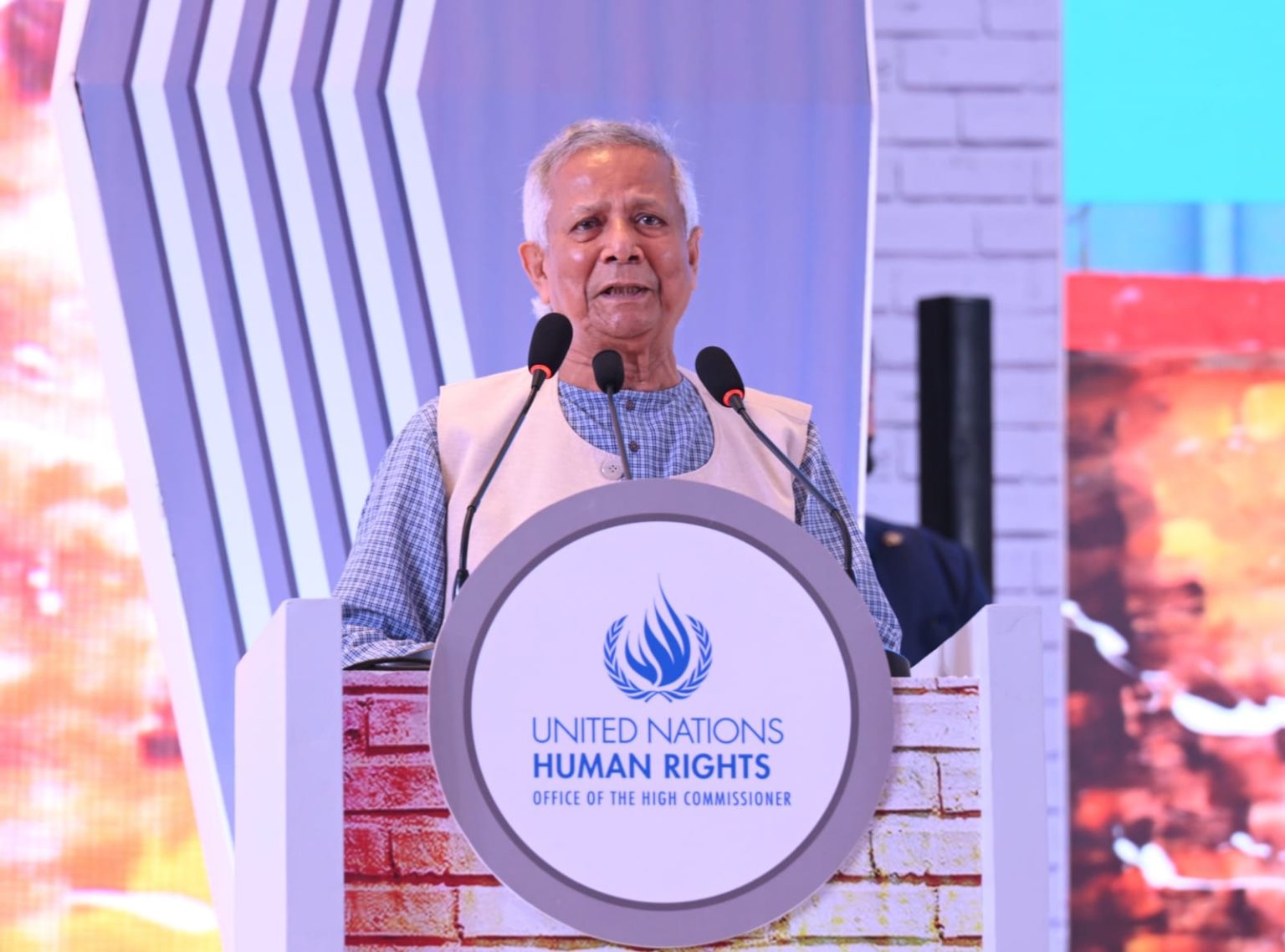Chief Adviser Muhammad Yunus on Tuesday described the July Uprising as a defining moment in Bangladesh’s history, pledging that his interim government would pursue both institutional reform and legal accountability to ensure that state power can never again be turned against the people.
Speaking at a ceremony marking the first anniversary of the July Uprising, Yunus honoured the sacrifices of thousands of young men and women who rose against what he called “a regime of tyranny that weaponized violence and crushed institutions for over a decade and a half.”
“This was a moment when Bangladeshis reclaimed their dignity and future,” he said. “Their courage spoke not only for our people but for humanity.”
The Chief Adviser said the uprising had created a moral imperative for reform and justice and reaffirmed his government’s commitment to work closely with the United Nations, which he credited for standing by Bangladesh during its most difficult moments.
“I thank the UN for its steadfast support—not only during the War of Independence or the Rohingya crisis, but again during the dark days of July and August last year,” Yunus said.
He noted that in August 2024, shortly after taking office, his administration formally requested the Office of the High Commissioner for Human Rights (OHCHR) to investigate allegations of systematic abuses between 1 July and 15 August.
The OHCHR report, published in February 2025, revealed that an estimated 1,400 people were killed over a few weeks and concluded that the violence was “systematic, directed, and coordinated from the highest levels of the previous regime.” Yunus called the report “a vital step not only for justice, but also for healing.”
“These findings, also corroborated by the BBC and Al Jazeera, raise urgent concerns about potential crimes against humanity,” he said.
Yunus announced that his government has begun implementing the UN’s recommendations. Key reforms include amending the Code of Criminal Procedure, acceding to the International Convention for the Protection of All Persons from Enforced Disappearance, and signing a Memorandum of Understanding with OHCHR to establish a permanent facilitating mission in Dhaka.
“This mission will assist in institutional reforms and support civil society and local authorities in building human rights capacity,” Yunus said.
He also thanked UN Secretary-General António Guterres for visiting Bangladesh in March and recognised the contributions of High Commissioner Volker Türk, UN Resident Coordinator Gwyn Lewis, and Senior Human Rights Adviser Huma Khan, calling their roles “extraordinary and historic.”
While affirming the government’s reform agenda, Yunus stressed that justice must be comprehensive. “Justice is not only about punishment. It’s about ensuring that state power can never again be used to suppress, silence, or destroy its own people,” he said.
He urged all political forces to come together and build a new political consensus, centred on inclusive, participatory, and credible elections.
“As we reflect on this past year, we remember those who gave their lives in pursuit of that vision,” Yunus said. “Their sacrifice paved the way for a new Bangladesh—one that is rooted in hope, human rights, and democratic renewal.”


